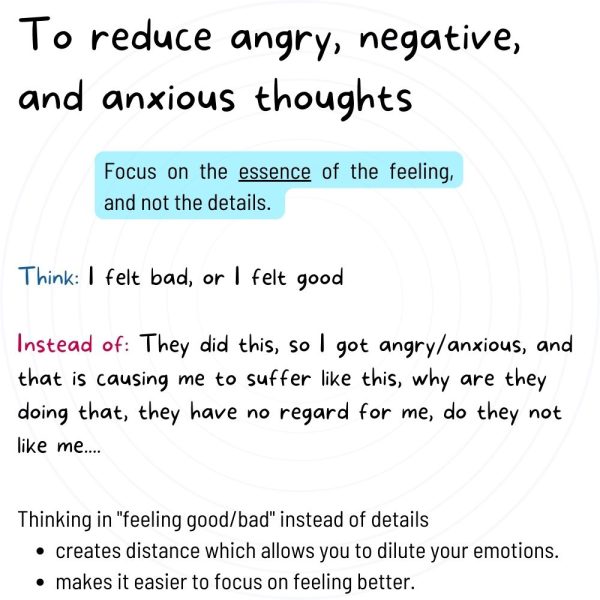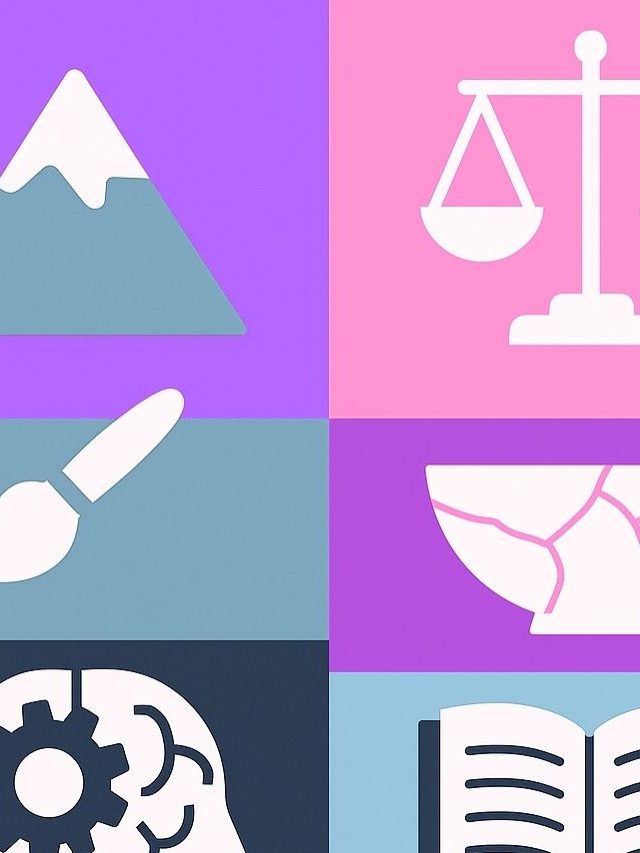Do you feel you are angry for no reason or do you get unnecessarily angry for little things? There are quite a few reasons that explain your anger.
- The basics
- 1. You believe people have mistreated you
- 2. You learned that anger gets things done
- 3. You’ve been suppressing your anger a lot
- 4. Something or someone is frustrating you
- 5. You feel entitled to something you aren’t getting
- 6. You’ve developed chronic anger
- 7. You do not want to help others because you are at your limit, even when they mean well
- Are you by default angry or do you have too many temporary anger bursts?
- Social & interpersonal level of anger
- Anger for others, empathetic anger
- Anger toward objects
- Anger toward the self
- Anger toward the distant others
- 3 Tips to overcome anger
- Sources
The basics
People get angry when they feel something, or someone is not assigning them the same value they are assigning others or that thing. Simply put, it’s a judgment of unfairness, and that judgment creates a response called “anger.” Showing anger and getting angry is considered a negotiation tactic to demand more fair treatment. When that negotiation fails, there is an intention to treat them (or the thing) poorly by giving ultimatums or punishing them. This is called the recalibration theory of anger, and so far, it’s the best we have got – we re-calibrate how much value others assign us by using anger as a bargaining/negotiation tactic.
The amount of value you give to others and others give to you is described by a “welfare trade-off ratio.” If you treat them better than they treat you, the ratio is low. If they treat you equally, the ratio is high. But many times, we do not know the source of our anger. Other mechanisms make you angry, so, let’s explore the reasons you may be angry with no defined cause.

1. You believe people have mistreated you
The most common reason could be that you feel people have mistreated you or they have neglected your welfare for so long that your baseline level of anger is high and generalized – you may even have a habit of ruminating anger and revisiting related memories. Constant anger (chronic anger) may indicate a deep-seated dislike for others’ behavior and a continuous fight to change it in your favor because you believe it is unfairly poor. This may go alongside low tolerance for other people’s behavior, which you can no longer change or control.
2. You learned that anger gets things done
You may have learned, through experience, upbringing, and examples, that showing anger helps you get what you want from others. People also avoid doing certain things because they don’t want to anger you. So in a way, anger is a mix of a positive and negative mindset. The negative mindset comes from anger causing interpersonal stress, and the positive mindset comes from avoiding that stress by increasing good behavior.
3. You’ve been suppressing your anger a lot
Another reason is that anger-in (suppressing it) can increase anger-out (expressing it) if you have high anger rumination[1] (preoccupation with angry feelings). When you suppress your anger with the goal of controlling your own anger, it may backfire and come out more strongly when you have intrusive thoughts about something that you didn’t like. The best solution for this is to control those intrusive thoughts. Here are some ways. Instead of suppressing your emotions, distractions[2] like art, music, writing, work, etc., can help too.
4. Something or someone is frustrating you
Frustration, in the psychological sense, means your efforts are blocked or wasted. The “frustration-aggression hypothesis[3]” states that when people are frustrated in their effort and develop negative feelings, they get angry. This often explains anger toward a broken piece of code, a malfunctioning object, etc. For example, if your phone is just not working during a critical time, you can get frustrated and throw your phone in anger if you get negative feelings about not being able to talk to someone. Similarly, you may feel frustrated talking with other people if they are not understanding you, which eventually makes you yell at them. When anger comes from frustration, it’s best to first step back for a few mins and disconnect from the anger-inducing situation. And then think with a problem-solving mindset – what new can I try? do I need help figuring this out?
When it comes to people, one of the oldest tricks in psychology – “behavior modeling” – helps. If you aren’t able to handle a situation, copy someone else’s behavior and model it into something you can do. Ideally, someone you respect and admire is a good person to model (hence the term role model).
5. You feel entitled to something you aren’t getting
An unexpected reason could be entitlement[4]. As per the theory, bad luck should not cause much anger because luck doesn’t care how it affects others, so there is no welfare trade-off ratio. But entitlement could increase feelings of the universe owing you luck. You may develop entitlement through beliefs like, “I deserve more luck.” So bad luck, through entitlement, could create a notion that the universe is neglecting your needs or welfare, and that triggers anger against the universe and everyone in it. The same study also suggests people who are entitled get angry if they experience bad luck, but not when others experience bad luck.
Anger can also be a direct response when you put in the effort toward something, but you aren’t receiving the reward[5] for it. If you are unable to change your behavior once you realize the reward isn’t coming, the anger amplifies with each instance of not seeing your expected reward. Here, the way to reduce anger is to stop or change the behavior that is failing to bring you the expected reward and try a new approach to get the same reward. For example, if yelling at someone isn’t getting them to treat you better, try encouraging all behavior you like first. The belief that all your effort, even if they fail to bring rewards, must be rewarded in some way is called “heaven’s reward fallacy.“
6. You’ve developed chronic anger
Chronic anger is a core theme in a number of psychological illnesses[6] like intermittent explosive disorder, bipolar disorder, and borderline personality disorder. In these disorders, your anger has generalized into a steady mental state where you are always angry.
Your default tendency to respond angrily occurs even after there are no triggers. It can be automatic through learning. If it becomes the easiest response you have, repeating it will make it even easier. So the cycle continues.
7. You do not want to help others because you are at your limit, even when they mean well
When someone asks questions that imply high importance for your welfare, they can induce anger simply because you no longer want others to continue any behavior that you are not ready to confront or manage. One common reason is that people don’t want to deal with their welfare due to a history of difficulties in managing it (common for depressed people). Anger, irritability, and frustration are symptoms of stress, depression, and uncertain circumstances.
This comes up as, “Stop asking me questions,” “don’t make me confront this,” “leave me alone, I’m getting irritated and I don’t want to feel this way.” A simple way to resolve this kind of anger is to ask for some space and consider talking about the problems later. And reassuring others that you acknowledge they mean well, but you can’t cooperate right now. Then, show gratitude for their concern, so they don’t get angry and start a cycle of your anger feeding their anger.
Are you by default angry or do you have too many temporary anger bursts?
Researchers describe two types[7] of anger. The first one is state anger – your current level of anger. The second one is trait anger – your default baseline level of anger. If you feel you are always angry, your trait anger is high. If you feel you are angry in the current specific situation but otherwise calm, your state anger is high.
This separation is important because it can tell you if you are constantly angry or you are in an anger-inducing circumstance full of stress, frustration, and difficulties (like you are constantly on edge or at the point of breaking).
In some cases, it may feel like prolonged temporary or many anger-inducing circumstances make anger feel natural and appropriate even when you are not triggered. That’s when your body’s arousal is very high, and activities like dance, music, sports, and exercise can help because they try to replace anger arousal with a more positive form of arousal.
Social & interpersonal level of anger
From the evolutionary psychology point of view, anger is more of a social dynamic than a precursor of violence, vengeance, hostility, and aggression. Because people have different welfare trade-off ratios for different people, they experience different levels of anger for certain people. The same incident wouldn’t make you angry if it happened with any random person. The social relationship, the expectation, the closeness, the entitlement, and the reciprocity between 2 people determines the welfare trade-off ratio. If someone offsets it, it triggers anger. A pattern of uncontrolled rage with new welfare ratios can become a habit between 2 people.
Anger for others, empathetic anger
In friendships, marriages, and even teams, there is a mutual level of empathy and hope for the collective good. When one person acts in a way that damages the collective good, members of that group may feel anger. In close relationships, we may feel anger toward other people because their action causes harm to themselves or the relationship. In such cases, empathy generates the necessary foundation to feel anger on behalf of someone else. If your friend angers you because they made a grave mistake in spite of knowing better, you experience empathetic anger. One example is getting angry at people you love for taking risks during the coronavirus pandemic. This anger is directed at a person even though it’s only indirectly about your welfare.
Anger toward objects
People form attachments with objects and have expectations from them. For example, you expect your phone, laptop, or code to work in a certain way. When they cease to function the way we want them to, we experience anger. So we end up hitting the keyboard, throwing the phone, kicking the car, shout at Siri and Alexa, etc. The “frustration-aggression hypothesis” explains such behavior. We tend to get angry and display aggression when our goals are blocked (frustrated). We ascribe human traits to objects[8] because we get attached to them, so we show anger to them to try and change them, almost always failing by damaging objects.
Anger toward the self
Anger can turn inwards over and above self-criticism[9]. It’s called internalized anger. We see it in depression[10], closely associated with self-deprecation and self-directed dislike: “I hate myself.” This type of anger may be an attempt to recalibrate the self, giving credence to the idea “depression is a battle within oneself.” It may explain why people lose the motivation to live and carry on with their day because negotiating with oneself is a psychologically costly process, and it is inherently a conflict. Being angry at yourself would then mean you want something about yourself to change, but you are not valuing your welfare, so the negotiation would either be an endless loop or a dead-end.
Anger toward the distant others
People express significant proportions of anger toward the more psychologically distant members of our society – governments, politicians, corporations, terrorists, faceless criminals, etc. People deem their actions to neglect the collective welfare leading to low welfare trade-off ratios. Such anger manifests as protests, social media outrage, dissent, etc. Assuming a moral high ground[11] might encourage a need to change others’ behavior via anger. For example, the George Floyd incident left the world shaken with a large amount of anger directed toward the police. The people’s anger was both empathetic anger for those who suffer and a response to modify the behavior of authorities because everyone’s collective welfare was given low importance.
3 Tips to overcome anger
There are many ways to control your anger and manage emotions, which I’ve discussed here, here, and here.
3 highlights from those linked resources:
- Dance and exercise to reduce anger by using your body’s arousal in a productive way. Focus on individual exercise[12] which doesn’t include aggressive movements like punching. Aggressive movements and behaviors like yelling into a pillow or punching a bag tend to increase, not decrease, aggressive feelings.
- Take a step back, distance yourself from the situation, and use deliberate words to discuss a problem.
- Think without details – mentally zoom out and see the big picture only. The fewer details you process, the lesser fuel there is for your anger. The following image describes the steps.

If you’ve been angry and hurt someone, you may want to apologize. Don’t know how to? Follow this guide that covers everything from small mistakes to major transgressions.
A supporting approach to anger management is stress management. Here are some tips that are particularly tailerd to those who are stressed through work.
Sources
[2]: https://www.tandfonline.com/doi/abs/10.1080/07421656.2011.557032
[3]: https://psycnet.apa.org/doiLanding?doi=10.1037%2F0033-2909.106.1.59
[4]: https://www.sciencedirect.com/science/article/pii/S0191886920304967
[5]: https://wires.onlinelibrary.wiley.com/doi/abs/10.1002/wcs.154
[6]: https://www.sciencedirect.com/science/article/abs/pii/S0272735816301490
[7]: https://onlinelibrary.wiley.com/doi/abs/10.1002/9780470479216.corpsy0942
[8]: https://guilfordjournals.com/doi/abs/10.1521/soco.2008.26.2.143
[9]: https://www.sciencedirect.com/science/article/abs/pii/S0191886913007526
[10]: https://www.sciencedirect.com/science/article/abs/pii/S0191886996002243
[11]: https://link.springer.com/article/10.1007/s11245-014-9238-7
[12]: https://pubmed.ncbi.nlm.nih.gov/27184261/

Hey! Thank you for reading; hope you enjoyed the article. I run Cognition Today to capture some of the most fascinating mechanisms that guide our lives. My content here is referenced and featured in NY Times, Forbes, CNET, and Entrepreneur, and many other books & research papers.
I’m am a psychology SME consultant in EdTech with a focus on AI cognition and Behavioral Engineering. I’m affiliated to myelin, an EdTech company in India as well.
I’ve studied at NIMHANS Bangalore (positive psychology), Savitribai Phule Pune University (clinical psychology), Fergusson College (BA psych), and affiliated with IIM Ahmedabad (marketing psychology). I’m currently studying Korean at Seoul National University.
I’m based in Pune, India but living in Seoul, S. Korea. Love Sci-fi, horror media; Love rock, metal, synthwave, and K-pop music; can’t whistle; can play 2 guitars at a time.



























